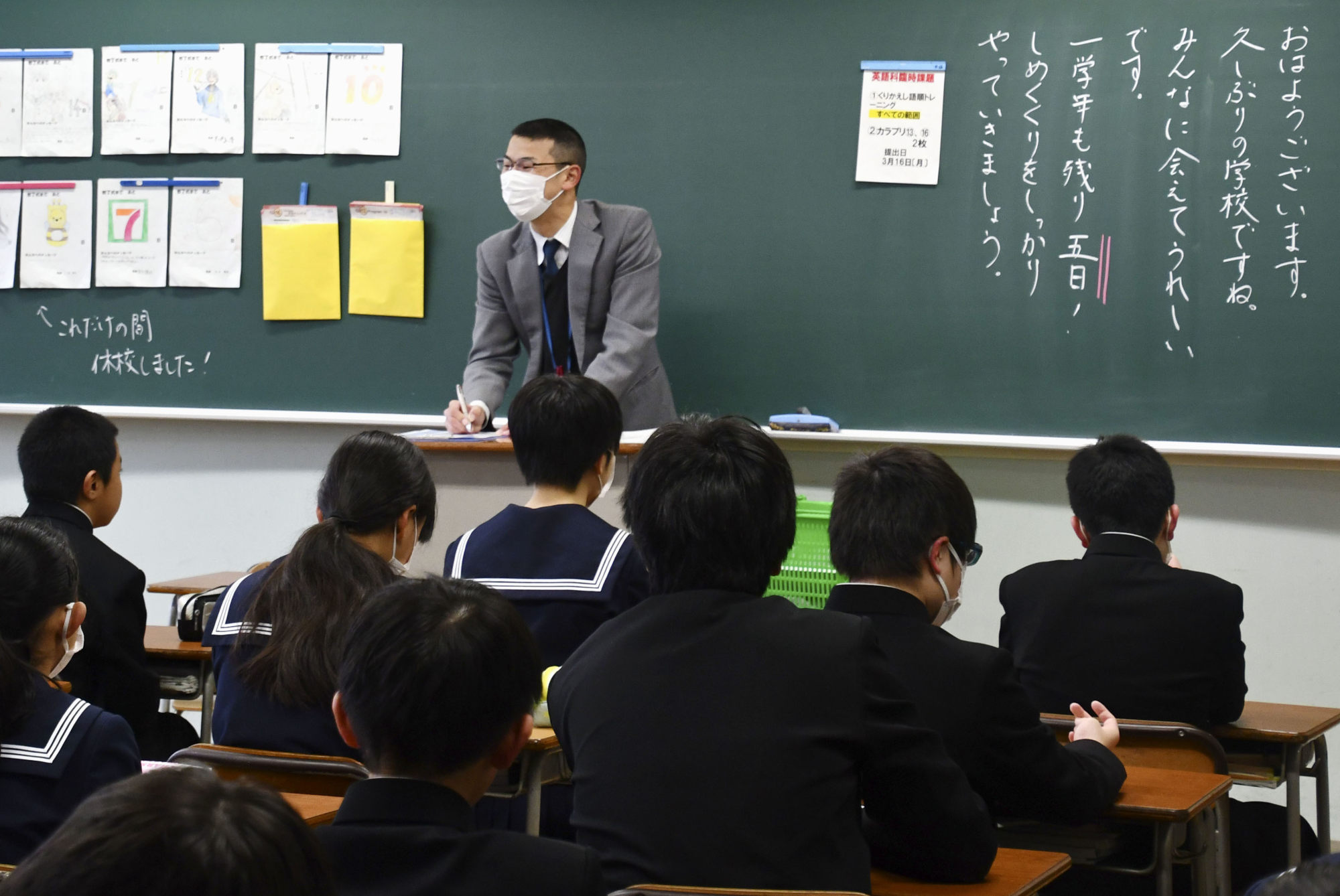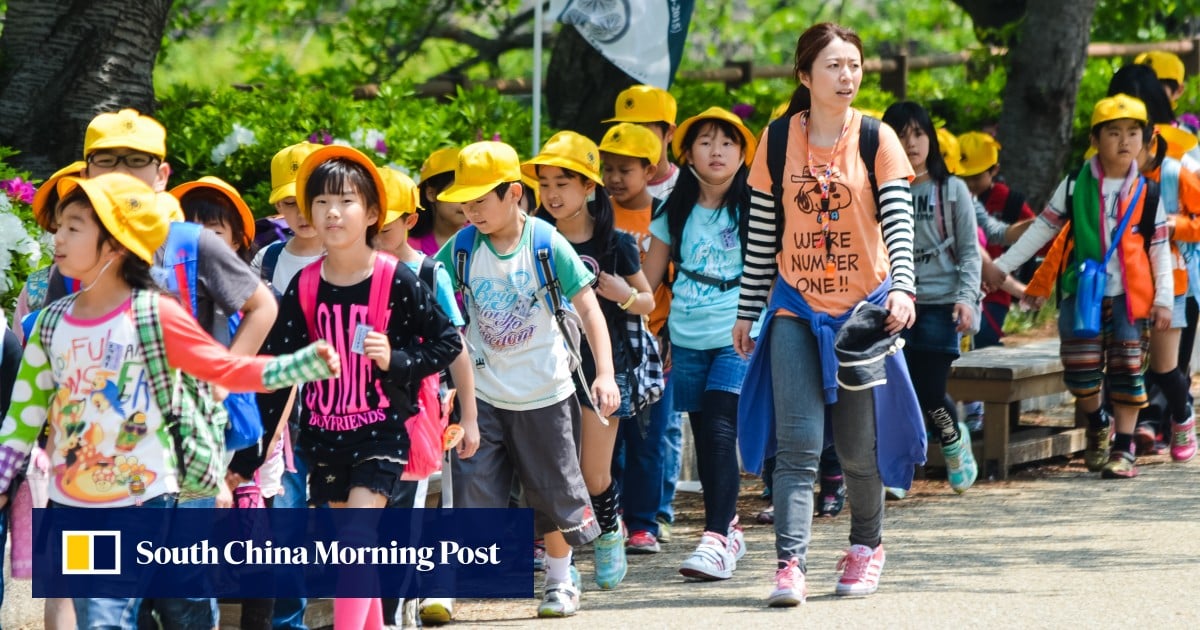“Excessive hours of overtime for teachers must be eliminated,” Chihiro Okamoto, an official of Zenkyo, told This Week in Asia. “The biggest reason for the additional hours is because the ministry has cut the education budget year after year, so there’s an acute shortage of teachers, which is now becoming a serious social problem.
“Every school in every prefecture in Japan has a shortage and that just means the other teachers have to put in more hours,” she said. “When we talk with our colleagues from teachers’ unions abroad, they are absolutely shocked at the situation in Japan. They cannot believe we have to do so many extra hours and that we do them without pay.”
The average public school teacher earns around 3.7 million yen (US$24,822) a year, rising to 5 million yen (US$33,543) per annum after 10 years.
According to a report in the Mainichi newspaper last year, teachers at junior secondary schools typically work 11 hours every weekday, with their primary-level counterparts clocking 10 hours and 45 minutes each day.
Teachers also put in an average of 2 hours and 20 minutes on weekends.
Why Japanese shun teaching: long hours, poor pay, risk of dying on the job
Why Japanese shun teaching: long hours, poor pay, risk of dying on the job
Okamoto said teachers joined the profession because they wanted to help children, and for years the educators had gradually been given additional tasks with no reward.
The ministry was “using” the teachers’ commitment to the profession against them, she said, because it was confident they would not strike for fear of hurting the children.
The stresses of the profession are, however, taking a toll.
A study by the ministry released in August last year showed that a record 953 teachers resigned from public schools across Japan in the 2021 academic year, citing mental health complaints. That figure was up 171 cases from the previous high, reported in 2018.
The most frequently cited reason for teachers handing in their resignations at primary, junior high and senior high schools was the long working hours.

A separate study showed that a record 5,897 teachers applied to take a leave of absence in 2021 as a result of psychological issues. The ministry also confirmed that fewer people were applying to become teachers, in large part because of the poor conditions, meaning that those who remained in the profession were having to work even harder.
The situation is so serious that the ministry announced last year the introduction of grants for counselling for teachers worried about their mental health.
A foreign teacher who worked in Japanese schools for five years admitted to being “shocked” at the amount of hours Japanese teachers put in, and the time they were effectively expected to do for free.
“I was always surprised at the start of the new academic year in April; children changed grades and often the teachers were not told which grade they would be teaching until a week before, and they had to quickly create a new curriculum for the year ahead.
“It was baffling to me,” said the teacher, who requested anonymity as she still works in the education sector. “That large amount of work put back the teachers’ other obligations so they were effectively playing catch-up from the first day of the new school year.”
Japan to cut teachers’ working hours amid ‘serious’ surge in mental health woes
Japan to cut teachers’ working hours amid ‘serious’ surge in mental health woes
She was also stunned at teachers not being paid for coaching sports teams or other weekend responsibilities, describing it as “forced voluntary” hours.
“I would not say that the teachers I worked with were demoralised by the situation they were in, but because of the long hours of extra work and the stress, that created the environment for other problems, such as harassment,” she said. “Too many hours was effectively the catalyst for a host of other problems.”
Teachers appear to broadly have the support of the public, with recent media coverage attracting angry online comments from readers.
One message linked to the TBS News webpage saying, “If the voices of those on the ground are not heard, then this country is doomed.”
In a statement, Nikkyoso said it was calling on the ministry to act “to save schools from the major crisis” that is on the horizon, demanding that more teachers be hired to share the burden and the addition of more school counsellors. The union also wants bureaucrats to devise ways to optimise their work roles and rethink pay structures.

